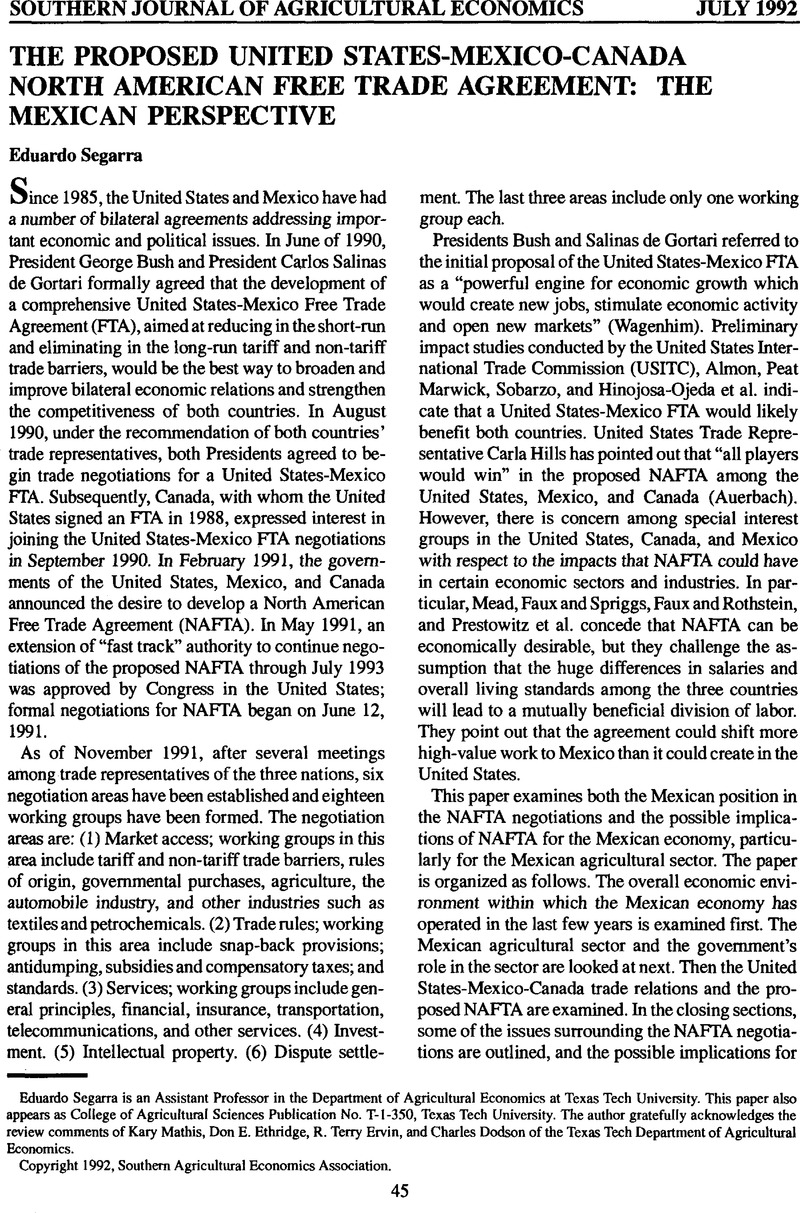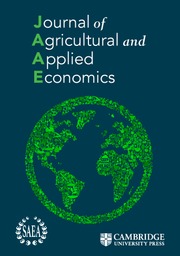No CrossRef data available.
Article contents
The Proposed United States-Mexico-Canada North American Free Trade Agreement: the Mexican Perspective
Published online by Cambridge University Press: 09 September 2016
Abstract

- Type
- Invited Papers and Discussions
- Information
- Copyright
- Copyright © Southern Agricultural Economics Association 1992


